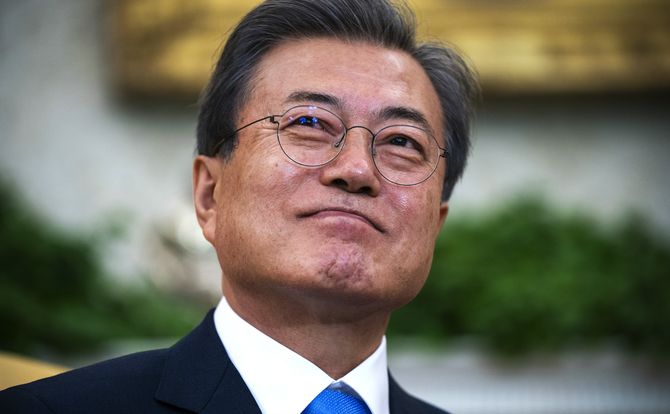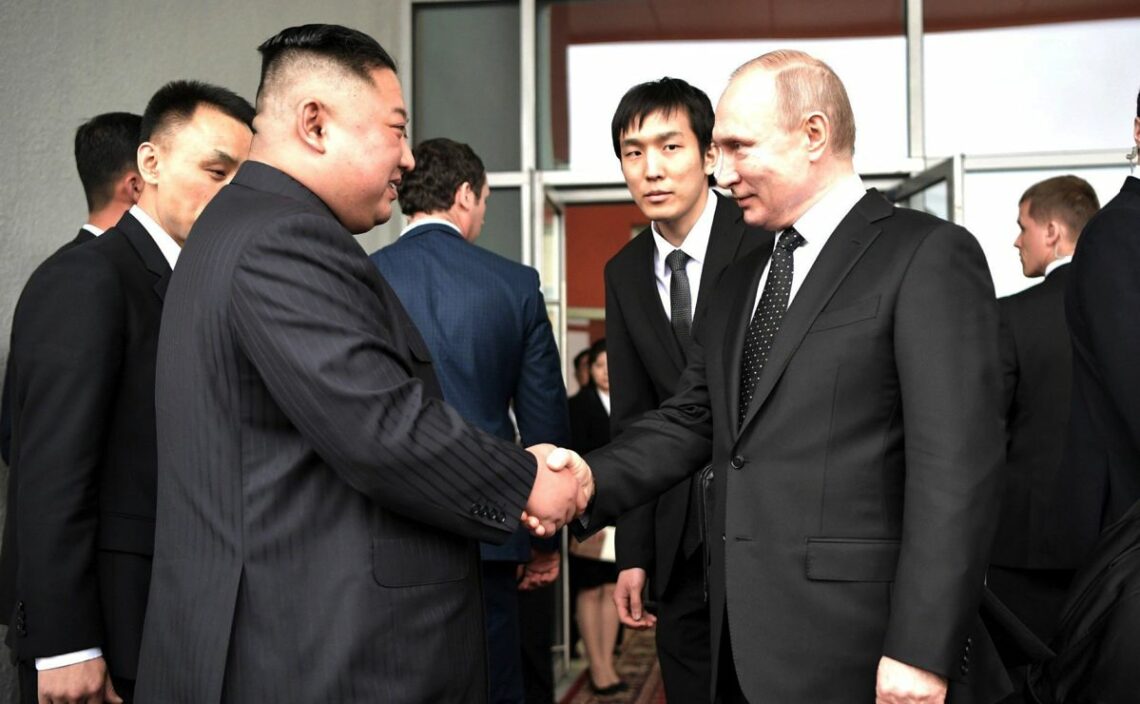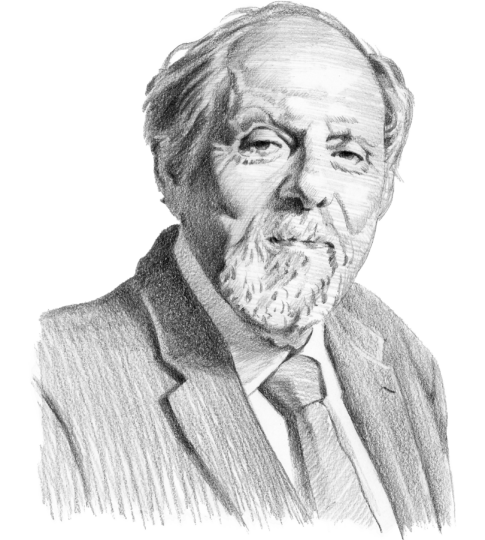Trump-Kim summit game squeezes South Korea’s president
In the three-way negotiations between North Korea, the U.S., and South Korea about the denuclearization of the Korean peninsula, Mr. Moon has perhaps the most sensible policy and is certainly the most predictable player. Yet, he is entirely overshadowed by his mercurial partners, North Korean leader Kim Jong-un and U.S. President Trump.

In a nutshell
- Korea is still East Asia’s key hot spot, with diplomatic commitments in constant flux
- For domestic reasons, Donald Trump and Kim Jong-un need another summit
- South Korea’s leader has the weakest cards and the most urgent need for progress
In the triangle with North Korean leader Kim Jong-un and United States President Donald Trump, South Korea’s President Moon Jae-in looks like the most predictable player. He is also the weakest of the three, which lengthens the odds that his sensible and pragmatic policies will work.
Hot spot
Nobody can deny that the Korean Peninsula has been and continues to be the main hot spot in East Asia. The border between the communist Democratic People’s Republic of Korea in the north and the Republic of Korea in the south is the most dangerous remnant of the Cold War. Bearing in mind the constant threat of a sudden outbreak, one would wish the main actors to be rational and their policies predictable. However, this is not the case with either Mr. Kim or Mr. Trump. In North Korea, the political system is by its very nature opaque. Like his father Kim Jong-il, Kim Jong-un has mastered the art of the surprise.
Commitments and preferences can change overnight. Policymakers in Seoul and other Asian capitals have gotten used to this, since the Hermit Kingdom has been behaving this way for seven decades.
A completely new factor in the East Asian power equation is the erratic behavior of President Trump. There are those who believe that Mr. Trump’s approach to North Korea is useful and could provide an exit from a permanent impasse. They point to the undeniable fact that no American administration has been more successful in engaging the North Korean leader than this one. While the question is still open about how lasting Mr. Trump’s impact will be, critics are fond of pointing out that the president’s Twitter musings and spontaneous media contacts show a consistent carelessness in his approach to the world’s last surviving Stalinist regime.
North Korea’s astute diplomacy has been quick to exploit the apparent policy split on the American side.
Furthermore, there are open rifts about how to deal with Pyongyang within the administration. Nobody doubts that Secretary of State Mike Pompeo and National Security Advisor John Bolton are determined proponents of a harder line toward North Korea. While Mr. Trump appears fixated on maintaining good personal chemistry with Mr. Kim, many in his national security establishment appear to favor the tougher approach advocated by Mr. Pompeo and Mr. Bolton.
High stakes
As was to be expected, North Korea’s astute diplomacy has been very quick to exploit the apparent split on the American side. Kim Jong-un went so far as to demand the expulsion of Mr. Pompeo and Mr. Bolton from the bilateral talks. Pyongyang seems to be particularly upset about the secretary of state’s description of Mr. Kim as a “tyrant” during a congressional hearing. This insult to the “Dear Leader” led to a demand from Pyongyang to exclude Mr. Pompeo from any subsequent negotiations.
President Trump rightly points to the fact that earlier administrations – and particularly that of his immediate predecessor, Barack Obama – had been unable to initiate any meaningful dialogue with North Korea. He also claims his special rapport with Mr. Kim has kept North Korea from holding provocative nuclear and missile tests. The second Trump-Kim summit, held in Hanoi in February 2019, was an obvious failure, but there is already talk of a third summit in the not-too-distant future. At the same time, the North Koreans keep needling the American side with occasional provocations.
On balance, it seems likely that a third meeting will take place. Both Mr. Trump and Mr. Kim have a personal interest in keeping talks going, and possibly in coming to an understanding on lifting sanctions and denuclearization of the Korean Peninsula. Mr. Kim seems to be in absolute control and even appears to have further consolidated his personal power in recent weeks. The North Korean leader’s main interest must be getting relief from crippling economic sanctions. There have been fresh reports of serious food grain shortages in North Korea. On the other hand, President Trump also needs a diplomatic coup. He has invested a lot of personal capital in the North Korean gambit, while his administration has few other foreign policy successes to brag about.
Seoul’s interests
While everything seems to hinge on Donald Trump and Kim Jung-un, there is a third party with a vital interest in the denuclearization talks: South Korea and its president, Moon Jae-in. Obviously, South Korea shares the same peninsula and would suffer the consequences of any outbreak of tensions or armed conflict. Yet it was not invited to the U.S.-North Korean talks, and both Washington and Pyongyang made it clear that they do not want Seoul to act as an intermediary.
As a pragmatist, President Moon is willing to be accommodating on sanctions to achieve his goals.
In South Korea, policies and attitudes toward the regime in Pyongyang are the subject of intense debate. In the conservative camp, hardliners dominate, while the liberals veer toward reconciliation. Since the start of his five-year term in 2017, President Moon has steered a pragmatic course. Very early he saw President Trump’s engagement in personal diplomacy with North Korea as an opportunity that could eventually lead to denuclearization of the Peninsula, a peace treaty between Washington and Pyongyang, and a lasting economic opening between the North and South.
Beyond the grandstanding at the Kim-Trump encounters, President Moon saw a chance to reduce tensions. These included small but concrete steps such as reopening the Kaesong Industrial Park, a South Korean-operated complex in a special economic zone in the North; the resumption of South Korean tourism to the Mount Kumgang region; and the restoration of freight service on North Korean railways, allowing exporters in the South to ship goods overland to European markets.
As a pragmatist, Mr. Moon has made it clear that he is willing to be accommodating on sanctions to achieve his goals. This puts him at odds with the American hardliners, including Mr. Pompeo and Mr. Bolton, who refuse to weaken the sanctions regime under any circumstances until North Korea has delivered on denuclearization. President Trump himself occasionally seems willing to compromise, but he has not presented a concrete solution.
All this puts President Moon in an awkward situation. His most recent visit to Washington, where he met briefly with President Trump, seems to have brought few tangible results. In the meantime, he has angered Pyongyang by failing to secure a partial relaxation of the sanctions regime, being obviously unable to make the Americans budge from their demands for complete denuclearization.
To make matters worse, Mr. Moon is under pressure on the home front, where the South Korean economy is showing signs of weakness. For a country that is highly dependent on exports, the current international climate does not look promising. South Korean domestic politics are combative and highly competitive, and Mr. Moon’s approval ratings are suffering. With the country’s next general election scheduled for 2020, opposition pressure on the president and his government will only grow in the months to come.

Summit calculations
At present, another Kim-Trump summit appears to be in the cards. However, the stakes this time are higher. After the abortive meeting in Hanoi, a second failure would likely put an end to summitry. At the same time, Pyongyang has stepped up its demands, including an arrogant attempt to dictate whom the Americans send to the negotiating table. Time is also pressing with the 2020 presidential campaigning season approaching fast in the U.S.
President Trump clearly wants a diplomatic breakthrough to burnish his image as an international dealmaker. The North Koreans are surely aware that this gives them leverage, since the political capital Mr. Trump has invested in recent rounds of personal diplomacy will be lost if the next summit fails to produce results. North Korean public opinion is under the thumb of the Communist Party, yet Kim Jong-un also cannot afford to be perceived as a loser. In fact, the Kim dynasty scion took a significant risk by agreeing to meet with Mr. Trump, as in his own country’s official ideology the U.S. is still the devil incarnate.
For President Moon, who faces a general election in 2020, any time pressure on Mr. Kim and Mr. Trump is positive.
The April 25 meeting between Mr. Kim and Russian President Vladimir Putin in Vladivostok sent a clear message to the White House that Pyongyang has other options than the U.S.
For President Moon, any time pressure on Mr. Kim and Mr. Trump is positive. He himself is feeling the heat ahead of next year’s general election, with a presidential ballot to follow in 2020. His best hope is to convince the nation that at least a partial solution to the nuclear issue, accompanied by a partial lifting of sanctions, is better than the status quo. Of course, Mr. Moon needs to court the U.S. administration along with his own domestic constituency. President Trump’s notorious volatility makes this a very difficult proposition.
Scenarios
Bearing in mind the complexity of the Korean question, the most likely scenario is the situation will stay volatile, alternating between signs of optimism and more pervasive concern about the rigidity of North Korea’s regime. That does not exclude the possibility of a sudden, decisive breakthrough. The final word on this belongs to the American president and the North Korean leader.
In this diplomatic faceoff, President Moon is a bystander with no real influence. To his own public, he could try to present himself as the voice of moderation. This would rally his supporters but also, on the other side, incite political opponents who see him as weak in his dealings with the North. As the electoral cycle in South Korean politics advances, Mr. Moon’s position gets weaker. In fact, we have already observed this process over the past few months. One question in the air is how much Pyongyang is interested in helping South Korea’s incumbent president. The North Koreans may make nicely calculated decisions or completely misjudge the opportunities available to Seoul. In any event, time is not on President Moon’s side.
It is significant that the South Korean president carries little weight with influential third parties, notably Chinese President Xi Jinping, Russian President Vladimir Putin and Japanese Prime Minister Shinzo Abe. Remarkably, relations with Japan have actually soured under his watch. China remains distant and intent on its own strategy of partially propping up the North Korean economy.
Everything suggests that South Korea lacks strong cards to play, making it imperative for President Moon to use every opportunity to capitalize on any conciliatory gestures from the North. For now, at least, Pyongyang does not seem about to plunge into another fit of belligerence like the one that shocked the region in the spring of 2018. A more realistic expectation is for the next few months to bring another round of missed opportunities. This would be bad enough news for President Moon, whose main political asset has been the reduction of military tensions on the Korean Peninsula.
The prevailing political trend in both the U.S. and East Asia seems to be pointing toward a continued diplomatic stalemate over North Korea. Pyongyang has been given no convincing reasons to surrender its nuclear arsenal. Both China and Russia want stability in the North and will surreptitiously provide any assistance needed to stave off a collapse. Particularly in his dealings with Beijing, Kim Jong-un has continued to play his trump card: Support me or deal with chaos, civil war and an American military ally on your border.
Barring a surprise breakthrough in the nuclear talks, the next move will likely come from Pyongyang’s hardliners, who are pressing Mr. Kim to end the informal moratorium on nuclear weapons and ballistic missile tests.








